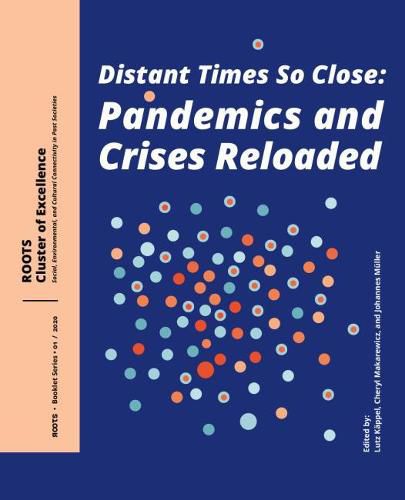Readings Newsletter
Become a Readings Member to make your shopping experience even easier.
Sign in or sign up for free!
You’re not far away from qualifying for FREE standard shipping within Australia
You’ve qualified for FREE standard shipping within Australia
The cart is loading…






Archaeology is all about how the present came into existence. Thus, it contributes to the social understanding of crises, including present and potential future adversities. Even diseases, such as pandemics in past societies, were and are observed by archaeology. Some examples can be found in this booklet. The scientists of the Kiel Cluster of Excellence ROOTS describe human reactions in past societies that were organized quite differently from ours. This is precisely why it is possible to identify the basic features of human behaviour for the management of crises.
From the emergence of agriculture more than 10,000 years ago to the Russian colonisation of Siberia a few hundred years ago, a fundamental pattern is becoming apparent: crises, including those caused by disease, can only be managed by increasing diversity. Acceptance of diversity, the introduction of new technologies and socially responsible action have always led to the mastering of crises.
It is also clear that values can only be preserved or updated in crises through active involvement. For example, scientists describe that when people are passive, other social groups can easily bind power to themselves, whereas when people actively participate, more democratic structures can develop even in crisis scenarios.
This is the message that we take with us from the past: whether as a forager or as a simple farmer in earliest agricultural societies, in ancient Greece or in an early modern society - diversity and social commitment are the components that help us to overcome crises. Learning from the past for the present - that is the task of international archaeology.
$9.00 standard shipping within Australia
FREE standard shipping within Australia for orders over $100.00
Express & International shipping calculated at checkout
Archaeology is all about how the present came into existence. Thus, it contributes to the social understanding of crises, including present and potential future adversities. Even diseases, such as pandemics in past societies, were and are observed by archaeology. Some examples can be found in this booklet. The scientists of the Kiel Cluster of Excellence ROOTS describe human reactions in past societies that were organized quite differently from ours. This is precisely why it is possible to identify the basic features of human behaviour for the management of crises.
From the emergence of agriculture more than 10,000 years ago to the Russian colonisation of Siberia a few hundred years ago, a fundamental pattern is becoming apparent: crises, including those caused by disease, can only be managed by increasing diversity. Acceptance of diversity, the introduction of new technologies and socially responsible action have always led to the mastering of crises.
It is also clear that values can only be preserved or updated in crises through active involvement. For example, scientists describe that when people are passive, other social groups can easily bind power to themselves, whereas when people actively participate, more democratic structures can develop even in crisis scenarios.
This is the message that we take with us from the past: whether as a forager or as a simple farmer in earliest agricultural societies, in ancient Greece or in an early modern society - diversity and social commitment are the components that help us to overcome crises. Learning from the past for the present - that is the task of international archaeology.